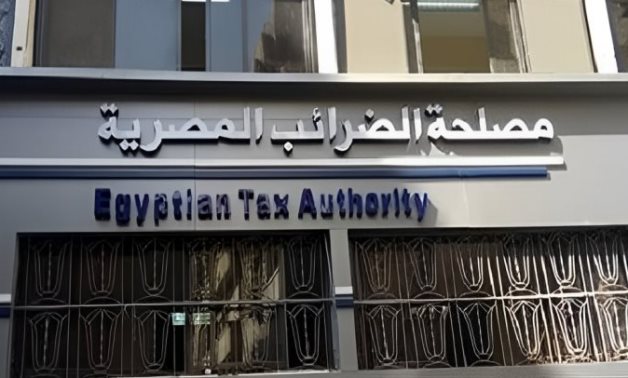
These strides have not only streamlined processes for taxpayers but have also delivered substantial benefits across a range of industrial sectors - File Photo
CAIRO – 8 August 2023: Dr. Fayez Al-Daba'ani, Director of the Egyptian Tax Authority, stressed the critical role the tax community plays within the larger tax framework in his first speech at a seminar focusing on the integration of tax and customs systems.
He emphasised the significant technological advances made by both the Ministry of Finance and the Egyptian Tax Authority.
These advancements have not only eased operations for taxpayers, but have also resulted in significant benefits across a variety of industrial sectors.
Dr. Al-Daba'ani further reaffirmed the strong and enduring collaboration between the Egyptian Tax Authority and the Egyptian Industries Union, solidified through a cooperative committee that consistently convenes to proactively tackle challenges faced by members of the union.
The President of the Egyptian Tax Authority explained that since the inception of the linkage between the electronic invoice system and the customs window system, continuous communication has existed between the Tax Authority and the Industries Union.
The aim is to resolve coding issues that certain union members have encountered. Dr. Al-Daba'ani emphasized the Tax Authority's proactive approach in informing taxpayers about the integration procedures between the electronic invoice and customs systems.
This is carried out through numerous online seminars, announced on the Authority's official website and social media platforms. During these seminars, comprehensive explanations about the integration procedures are provided, and queries from participants are addressed.
Dr. Fayez Al-Daba'ani stated, "Our goal, as the Tax Authority and the industrial community, is to function as a unified team and a cohesive national fabric to support our beloved Egypt."
On his part, Mohammed El-Bahi, a member of the Board of Directors of the Industries Union and the head of the Tax and Customs Committee, expressed gratitude to Dr. Mohamed Maait, the Minister of Finance, for his attention and oversight of projects aimed at modernizing and digitizing the tax system.
These projects are executed in line with the policies and under the auspices of the political leadership.
El-Bahi asserted that these initiatives will enhance confidence in the tax community, with the system enhancements contributing to customs clearance efficiency.
He also commended the swift response of the Egyptian Tax Authority in organizing the informative seminar, elucidating integration procedures between the electronic invoice and customs systems, and addressing queries from the industrial community.
This issue had stirred significant discussion among various industries. El-Bahi affirmed the union's keenness to understand the optimal approach to dealing with this system and highlighted that the united industry sector is the largest organized contributor to taxes in Egypt.
Elaborating on the expansion of automation in the Tax Authority, Dr. Al-Sayed Saqr, Deputy Head of the Egyptian Tax Authority, stated that several development and automation projects are underway, in alignment with Egypt Vision 2030 for digital transformation.
Among these projects are the unified gateway for the Egyptian Tax Authority, the electronic invoice system, electronic receipts, comprehensive tax operation automation, and integration with internal and external entities within and beyond the Ministry of Finance.
Dr. Saqr underscored the governance of commercial transactions and the integration of the informal economy within the official economic system.
This has been achieved through the integration between the electronic invoice and customs systems, facilitating imports and exports while promoting tax justice and simplifying tax examination procedures.
Rasha Abdel-Aal, Deputy Head of the Egyptian Tax Authority, commenced her speech at the seminar titled "Integration between Tax and Customs Systems" by outlining the comprehensive digitization efforts of the Egyptian Tax Authority.
These initiatives include the unified gateway for the Egyptian Tax Authority, the electronic invoice system, electronic receipts, comprehensive tax operation automation, and the integration and linkage project with internal and external entities.
She emphasized that, within the context of governance of commercial transactions and the incorporation of the informal economy, the linkage between the electronic invoice and customs systems regarding imports and exports has realized numerous benefits for the tax community.
These advantages include tax justice, simplified tax examination procedures, and efficient customs release for high-priority shipments.
The seminar, organized by the Industries Union in collaboration with the Egyptian Tax Authority, witnessed the presence of Dr. Sayed Saqer, Deputy Head of the Egyptian Tax Authority, Rasha Abdel-Aal, Deputy Head of the Egyptian Tax Authority, along with several representatives from both organizations, industries, exporters, and importers.
Comments
Leave a Comment